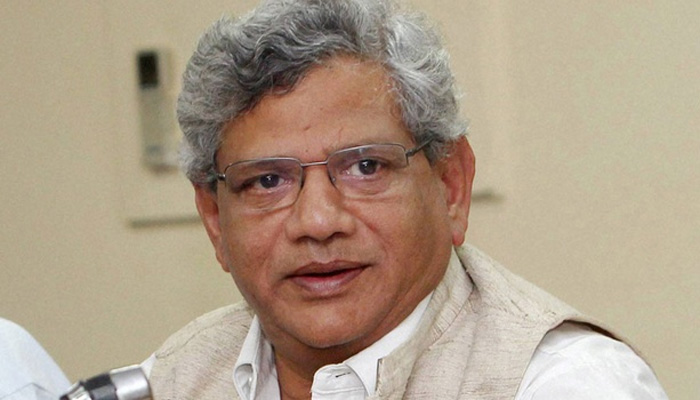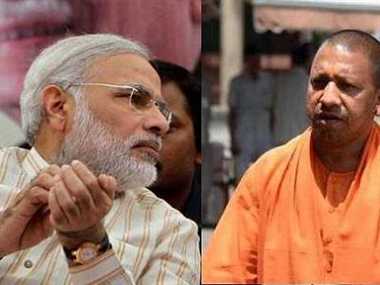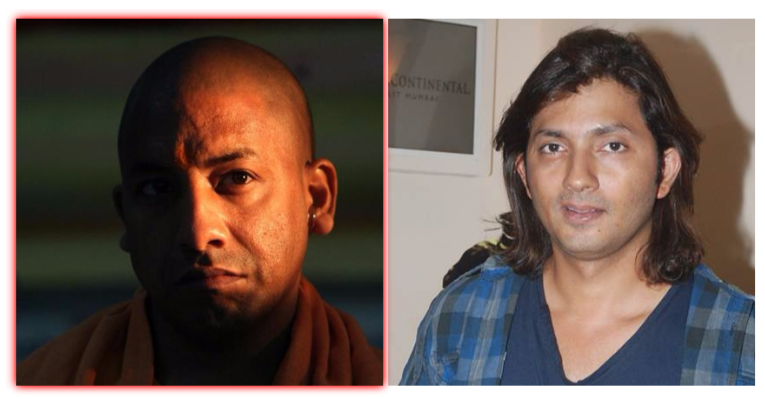
Email: sabrangind@gmail.com

Eminent constitutional expert Fali Nariman has said that the appointment of Yogi Adityanath as Uttar Pradesh’s chief minister was a beginning of a Hindu State in India.

Speaking to journalist Shekhar Gupta on Off The Cuff programme, Nariman asked the journalists why they had not this question to Modi adding that Adityanath’s appointment was sign that India’s constitution was under threat.
He said, “The constitution is under threat. With the massive electoral victory in Uttar Pradesh. With a priest installed at the behest of the prime minister as the chief minister, like a cherry on the victory cake. That’s the signal. And if you can’t see then you must be spokesperson of that political party or you must have your eyes examined.”
“The message is very clear. What you want to do is for all of us to decide..I don’t quite accept the policies of the prime minister. And I say it quite and I say it quite openly,” he added.
Nariman said that the constitution still had the strength but the people who supported the constitution did not.
Taking a swipe at media, he said, “Why’s no correspondent from any leading channel asked the prime minister, ‘prime minister is it true as this fellow Nariman seems to suggest that this is the beginning of the Hindu State.’ Ask him…At least you know what to be prepared for.”
Adityanath was chosen as Uttar Pradesh’s chief by PM Modi after the BJP won a historic landslide by winning 325 out of 403 seats in the state.
Adityanath has been known for being a proponent of militant Hindutva and anti-Muslim rhetoric.
Courtesy: Janta ka Reporter

The UP Chief Minister is on a two-day visit to Gorakhpur, the constituency he has represented for the last five terms as a Member of Parliament.
Fear and Intimidation often work in silencing dissent. Days after his comments on Twitter against Adityanath, newly installed CM of UP drew attention and then an FIR, filmmaker Shirish Kunder has apologised on social media. The FIR was registered against him for allegedly making derogatory remarks against Uttar Pradesh Chief Minister Aditya Nath Yogi.

"I unconditionally apologise. I never meant to hurt anyones feelings or sentiment," Kunder posted on his Twitter page.
The FIR against the director was registered yesterday in Lucknow based on a complaint filed by Amit Kumar Tiwari, Secretary of Thakurdwara Trust of Ayodhya.
In a series of tweets, which have now been deleted, Kunder had written, "Hoping a goon will stop rioting once hes allowed to rule is like expecting a rapist to stop raping once hes allowed to rape (sic)".
In another tweet, he had said: "Going by the logic of making a goon as CM so that he behaves, Dawood can be CBI director. And Mallya – RBI Governor (sic)." PTI JCH JCH
The Centre’s Narendra Modi government has described as “questionable” an editorial in The New York Times criticising Prime Minister Narendra Modi’s choice of Yogi Adityanath as Chief Minister of Uttar Pradesh.
“All editorials or opinions are subjective. This case is particularly so and the wisdom in doubting the verdicts of genuine democratic exercises is quite questionable, both at home and abroad,” External Affairs Ministry Spokesperson Gopal Baglay said in response to a question.

The NYT editorial titled “Modi’s Perilous Embrace of Hindu Extremists” had said that since he came to power in 2014, PM Modi “has played a cagey game, appeasing his party’s hardline Hindu base while promoting secular goals of development and economic growth”.
Calling Yogi Adityanath a “firebrand Hindu cleric”, the editorial said the move to name the 44-year-old as Uttar Pradesh’s chief minister is a “shocking rebuke to religious minorities”.
The editorial had said, “On Sunday, Mr. Modi revealed his hand. Emboldened by a landslide victory in recent elections in India’s largest state, Uttar Pradesh, his party named a firebrand Hindu cleric, Yogi Adityanath, as the state’s leader. The move is a shocking rebuke to religious minorities, and a sign that cold political calculations ahead of national elections in 2019 have led Mr. Modi’s Bharatiya Janata Party to believe that nothing stands in the way of realizing its long-held dream of transforming a secular republic into a Hindu state.”
In his Facebook Live on the day Yogi was chosen to tee the next chief minister by the BJP, Janta Ka Reporter’s editor-in-chief, Rifat Jawaid, was the first journalist to conclude that the decision had unmasked Modi by exposing his hollow agenda of development. (Watch the video below)
Making similar assertion, the NYT’s editorial said, “But the appointment shows that Mr. Modi sees no contradiction between economic development and a muscular Hindu nationalism that feeds on stoking anti-Muslim passions. Mr. Modi’s economic policies have delivered growth, but not jobs. India needs to generate a million new jobs every month to meet employment demand. Should Mr. Adityanath fail to deliver, there is every fear that he — and Mr. Modi’s party — will resort to deadly Muslim-baiting to stay in power, turning Mr. Modi’s dreamland into a nightmare for India’s minorities, and threatening the progress that Mr. Modi has promised to all of its citizens.”
(Additional inputs from PTI)
Courtesy: Janta Ka Reporter